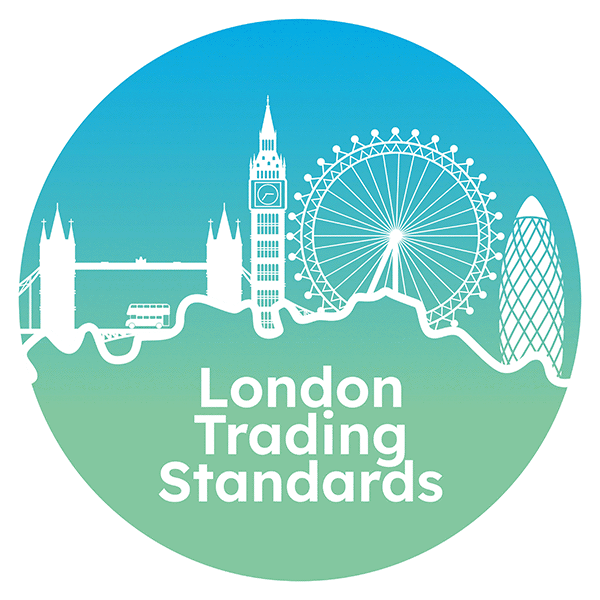
Fakes: Bad for business, bad for consumers
London Trading Standards are at the frontline of anti-counterfeiting work in the capital. It’s important work – dealing in fakes is a criminal offence that not only harms legitimate businesses, but leaves consumers with sub-standard goods which are often unsafe.
Every year across London we seize many thousands of items from retailers and markets as well as wholesalers, importers and online sellers.
Fakes, snides, knock-offs, bootlegs, replicas – don’t let them ruin your life
Everyone knows that selling fakes is against the law – that’s why honest, hardworking traders don’t get involved in them. For anyone caught selling fakes it is not just the goods that they lose, their whole livelihood is at risk:
- A prison sentence could be imposed of up to 10 years
- An unlimited fine could be imposed
- Homes, possessions and other assets could be confiscated as proceeds of crime
London Trading Standards have access to financial investigators and the Courts can confiscate any monies or assets that have not been earnt legitimately. We also work with local market operators, shopping centre managers and online sales sites to ensure that anyone selling illegal goods can be stopped from trading.
Report it
If you wish to report anyone selling counterfeit goods you use our online report form to tell trading standards in confidence or report them using the Crimestoppers service – telephone 0800 555 111.
Respect creativity
Cracking Ideas
When goods are illegally copied, or music and films are pirated, it really represents the stealing or theft of someone elses property.
Whether if be unique designs, trade marks or a copyright work it all comes under the banner of intellectual property, or IP for short.
This year our partners at the Intellectual Property Office (IPO) have launched a new educational resource designed to help anyone working with young people. An understanding of IP is important for people in lots of different careers.
A new website, developed with the creators of Wallace and Gromit, provides a platform to explore learning resources on protecting creativity and innovation. Whether it be an amazing invention, machine or medicine; a book, song or work of art; a business name or product design.
- Visit crackingideas.com and please do share the link with anyone who works with young people
So what’s the harm?
Don’t take the risk – get real
“They charge too much for the real thing” or:
“There’s no harm in selling fakes.”
London Trading Standards are used to hearing these things said – but it is just not that simple. Counterfeiting has many hidden effects on all of us that are harmful:
- Have you ever wondered where the money spend on them goes?
- Do you think fakes are good quality and made to last?
- How do you know fakes are safe to use?
- Do you care about honest hardworking businesses?
Dealing in fakes is a serious criminal offence – punishable by fines and imprisonment. London Trading Standards have a legal duty to enforce the law and every year we seize large quantities of inferior, illegally copied and often unsafe goods that were on sale to the public.
Those that deal in fake goods do not contribute to the local economy and are often involved in other fraud. Income tax and VAT go unpaid, as their trade is not declared, and in many cases housing benefit and council tax fraud is uncovered in investigations. In summary, traders in fakes lead criminal lifestyles – they are not cuddly Del Boy types.
But I love a bargain!
Fake goods are no bargain buy. They are inevitably of much poorer quality than the real thing, they will not last as long or work as well and there is not going to be any recourse for you if the item is faulty or unsafe.
In the worst case scenarios fake goods have the potential to kill. For example, where fake toys or electrical products are concerned. The bogus manufacturers will not bother to ensure they meet strict safety regulations.
What are London Trading Standards doing?
Working towards a fake free London
London Trading Standards works closely with many partners to try and ensure London is a fake-free, fair and safe trading environment, these include:
- Brand representatives and brand protection staff
- Online platforms and auction websites
- Market operators
- HM Revenue & Customs
- Police Officers including PIPCU
- Financial sector and payment organisations
Trading standards carry out overt and covert inspections of physical premises and online sites and have the power to seize any goods, documents or other items required as evidence.
The prosecution of offences under trade marks and copyright legislation, along with fraud and money laundering laws is routine. Proceeds of crime confiscation proceedings can also be instigated.
To find out more about the fight against fakes visit the Anti-Counterfeiting Group website.
Report it
If you wish to report anyone selling counterfeit goods you can tell Trading Standards in confidence using our online form or report them using the Crimestoppers service – telephone 0800 555 111.
What type of goods are faked?
You may be surprised by the huge range of goods being faked these days. It is not just DVDs and designer wear. These are some of the things London Trading Standards have found being faked:
- antiques, artwork and books
- bags, luggage, belts and purses
- batteries
- car parts
- cigarettes and tobacco
- condoms
- cosmetics (soaps, perfumes, toothpaste etc.)
- software, games and game consoles
- electrical items (e.g. hair straighteners)
- jewellery and watches
- lighters
- medicines and patent drugs
- mobile phones, chargers and accessories
- power tools
- razors
- soft drinks, spirits and champagne
- sports equipment and sportswear
- sunglasses
- washing powder


